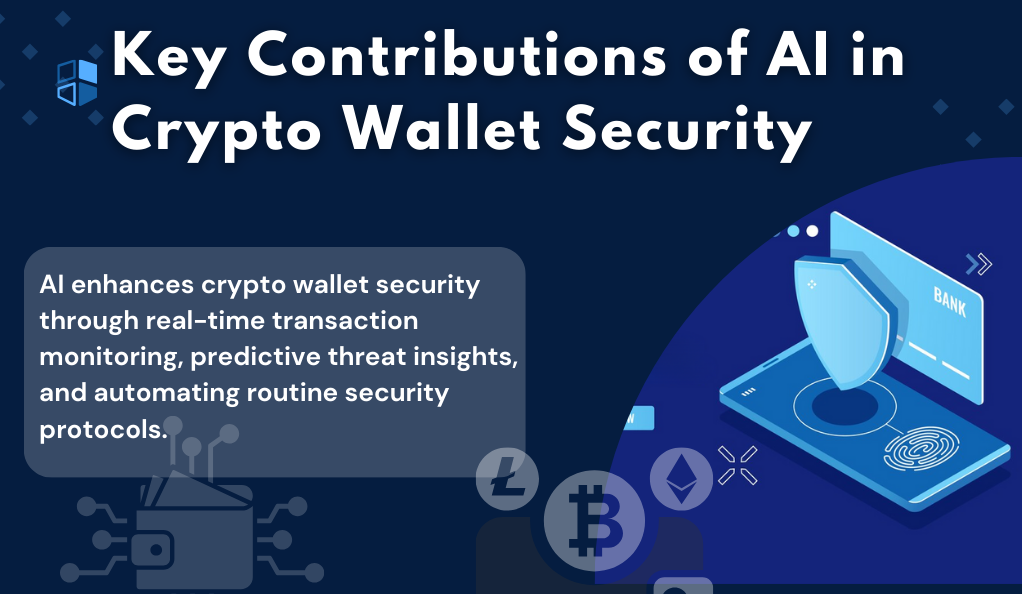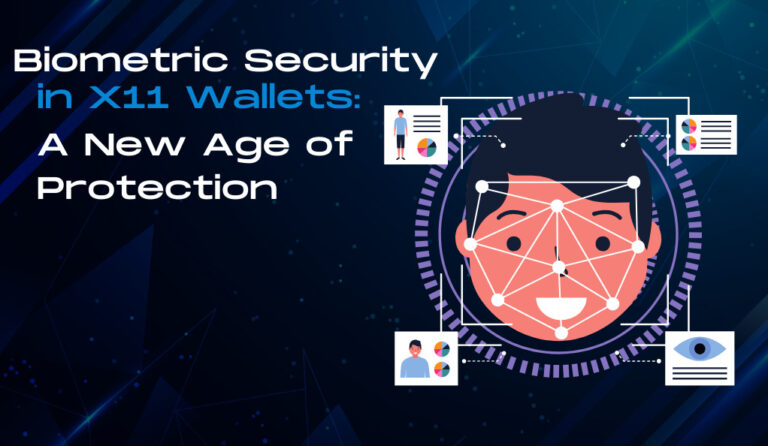In the ever-evolving world of cryptocurrencies, the security of digital wallets has always been of paramount importance. As digital currencies gain traction and become a mainstream method of transaction, ensuring the safety of these assets becomes crucial. The X11 wallet, known for its unique hashing algorithm, is no exception. With the rise of sophisticated cyber threats, the traditional methods of securing these wallets are proving to be insufficient. Enter Artificial Intelligence (AI) – a technology that promises to revolutionize the way we approach X11 wallet security.
The Importance of Wallet Security in the Crypto Landscape
Cryptocurrencies, by their very nature, are decentralized. This means that unlike traditional currencies, there is no central authority or bank that oversees or regulates them. While this decentralization offers numerous benefits, such as reduced transaction fees and increased privacy, it also comes with its own set of challenges. One of the most significant challenges is security.
Digital wallets are the primary means by which individuals store, send, and receive cryptocurrencies. These wallets contain private keys, a kind of digital signature that proves ownership of a cryptocurrency balance. If these keys fall into the wrong hands, the funds can be easily stolen. Given the irreversible nature of cryptocurrency transactions, once the funds are taken, they are gone forever.
AI: The Future of Crypto Wallet Security
As cyber threats become more advanced, the methods to counteract them must evolve as well. Traditional security measures, such as password protection and two-factor authentication, are no longer enough. AI, with its ability to learn from data, recognize patterns, and make decisions, offers a new frontier in wallet security.
AI can analyze vast amounts of data at lightning speed. This means that it can quickly detect any unusual activity in a wallet, such as an unauthorized access attempt or a suspicious transaction. Moreover, AI can adapt and learn from new types of threats, ensuring that the wallet remains secure even as cyber threats evolve.
The Unique Case of the X11 Wallet
The X11 wallet, named after its unique hashing algorithm that uses 11 different hashes, offers several advantages over other types of wallets. It’s more energy-efficient, offers faster transaction times, and is considered more secure due to its complex hashing. However, like all digital wallets, it’s not immune to threats.
| Feature | Traditional Security | AI-Enhanced Security |
|---|---|---|
| Authentication | Password-based | Biometric and behavioral-based |
| Threat Detection | Manual monitoring | Real-time AI monitoring |
| Adaptability | Static | Dynamic, learns from new threats |
| User Experience | Standard | Personalized based on user behavior |
| Response Time to Threats | Hours/Days | Seconds/Minutes |
The Evolution of Crypto Wallets

The journey of crypto wallets has been nothing short of remarkable. From rudimentary software solutions to sophisticated multi-currency platforms, the evolution of crypto wallets mirrors the growth and maturation of the cryptocurrency ecosystem itself.
The Genesis: Simple Software Solutions
In the early days of Bitcoin, the first and most renowned cryptocurrency, wallets were straightforward software-based solutions. Their primary function was to facilitate the sending and receiving of Bitcoin. These wallets, often referred to as “Bitcoin clients,” were limited in features and catered exclusively to the pioneer cryptocurrency.
The Rise of Multi-Currency Wallets
As the crypto landscape expanded, introducing a plethora of new digital currencies like Ethereum, Litecoin, and Ripple, the demand for wallets that could manage multiple cryptocurrencies grew. This led to the development of multi-currency wallets, which allowed users to store, manage, and transact in various cryptocurrencies from a single platform.
Hardware Wallets: A Leap in Security
Recognizing the vulnerabilities of online storage, the crypto community witnessed the emergence of hardware wallets. These are physical devices, akin to USB drives, that store the user’s private keys offline. By ensuring that the keys never touch the internet, hardware wallets provide an added layer of security against online hacks and malware.
The Integration of Advanced Features
Modern crypto wallets offer much more than just transactional capabilities. They come equipped with features like:
- Integrated Exchanges: Allowing users to trade cryptocurrencies directly from their wallets.
- Staking: Enabling users to earn rewards by holding and supporting a particular cryptocurrency.
- DApps Access: Direct access to decentralized applications without leaving the wallet interface.
The Need for Enhanced Security
With the increasing value and adoption of cryptocurrencies, the incentive for hackers has never been higher. Reports of wallet breaches and thefts became alarmingly common, underscoring the urgent need for enhanced security measures. This set the stage for AI’s entry into the crypto wallet security domain.
The Need for AI in Crypto Wallet Development
The crypto world, with its decentralized nature and high-value transactions, presents a lucrative target for cybercriminals. As the threats become more sophisticated, traditional security measures are proving inadequate. This is where AI steps in, offering a dynamic and proactive approach to security.
Proactive Threat Detection
Unlike traditional security systems that react to breaches, AI-driven systems are proactive. They continuously monitor user behavior, transaction patterns, and other relevant data to detect anomalies. Any unusual activity triggers instant alerts, allowing for immediate intervention.
Dynamic Learning and Adaptability
One of AI’s most significant advantages is its ability to learn. By analyzing past security breaches, attempted hacks, and user behavior, AI systems can predict and thwart potential future threats. This dynamic learning ensures that the wallet’s security evolves in tandem with the ever-changing threat landscape.
Enhanced User Authentication
AI introduces advanced user authentication methods, moving beyond the traditional password systems. Biometric authentication, which includes fingerprint scanning, facial recognition, and even voice recognition, offers a more secure and user-friendly login method. AI algorithms ensure the authenticity of these biometric inputs, making unauthorized access exceedingly challenging.
Behavioral Analysis for Security
Every user has a unique pattern when it comes to accessing and using their crypto wallets. AI systems can learn these patterns and establish a “user behavior profile.” Any deviation from this profile, such as accessing the wallet at odd hours or making unusually large transactions, can be flagged for additional verification.
Key Contributions of AI in Crypto Wallet Security
AI’s contributions to enhancing crypto wallet security are manifold. From bolstering traditional security measures to introducing innovative features, AI is truly revolutionizing the way we approach X11 wallet security.

Real-time Monitoring and Alerts
AI systems can monitor thousands of transactions in real-time, instantly flagging any suspicious activity. This not only prevents potential breaches but also instills confidence in users, knowing that their assets are continuously monitored.
Predictive Insights
By analyzing historical data, AI can provide predictive insights on potential security threats. For instance, if a particular type of malware has been detected in other wallets, the AI system can fortify the wallet’s defenses against this specific threat.
Automation of Security Protocols
Routine security checks, software updates, and other standard procedures can be automated using AI. This ensures that the wallet is always equipped with the latest security measures without relying on manual interventions.
Conclusion
The integration of AI into crypto wallet security marks a transformative phase in the world of digital finance. As we stand on the cusp of this revolution, the potential for growth, innovation, and enhanced security is boundless. The marriage of AI and cryptocurrency not only promises to safeguard digital assets but also to redefine the very way we perceive and interact with the financial world.
From proactive threat detection to personalized financial advice, the future of crypto wallet security is bright, with AI leading the charge. As the crypto ecosystem continues to expand and mature, the synergy between AI and digital finance will undoubtedly pave the way for a safer, more efficient, and more inclusive financial future.
At axerunners.com, our goal is to furnish well-rounded and trustworthy information regarding cryptocurrency, finance, trading, and stocks. Nonetheless, we avoid providing financial advice and instead encourage users to conduct their own research and meticulous verification.
Read More











